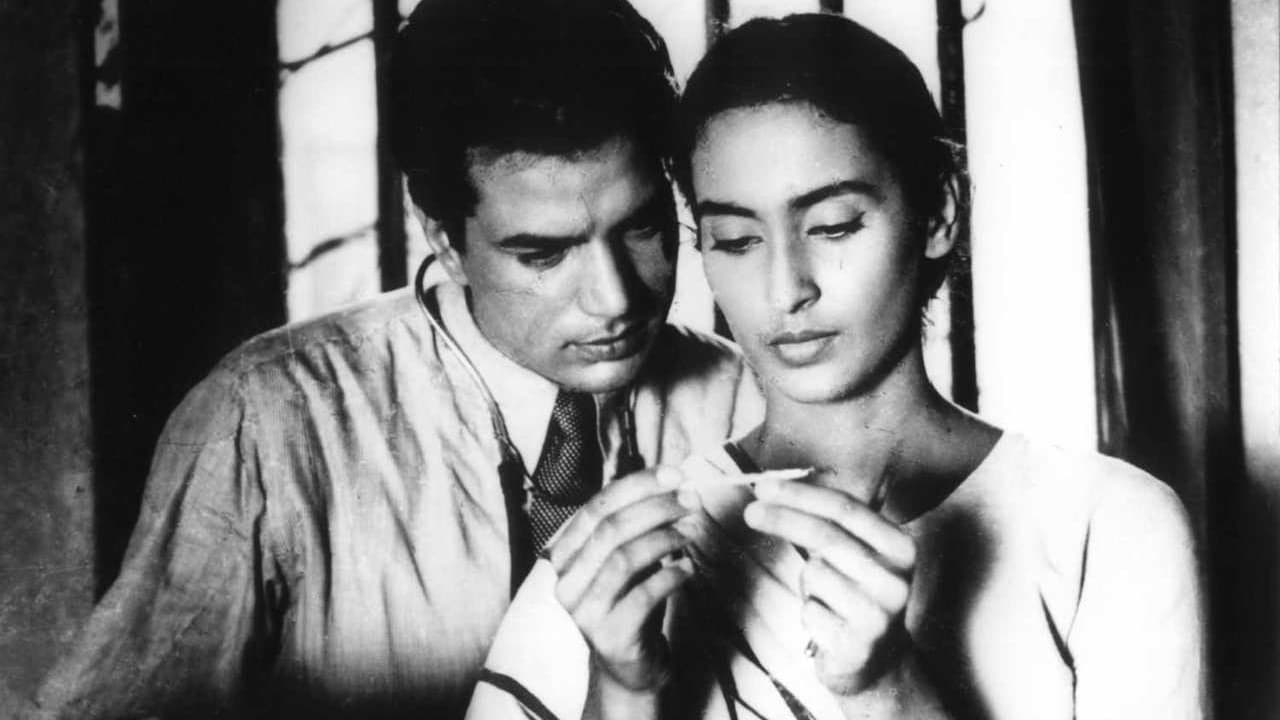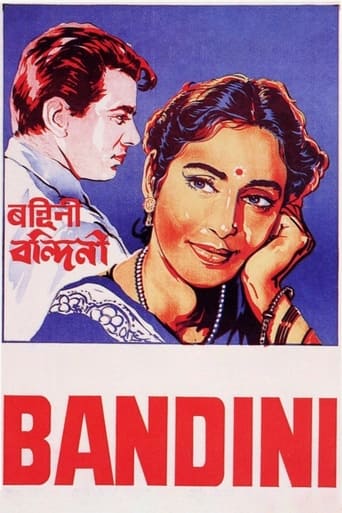

Vintage Bollywood films are a new source of wonder for me. With less than ten titles under my belt, I still enjoy the big-eyed optimism of a neophyte, and being something of a film buff in other genres, the critical demands of a cranky old art-house fop. That being my background, I approached Bimal Roy's film, Bandini, with few expectations and was pleasantly surprised, so pleasantly. The intelligently-handled scenes by director Bimal Roy took me back to a few of the great American and French directors of the 1930's, when realism was eschewed for style, and drama was willing to risk sentimentality if it meant giving strength to the ultimate story. The type of film-making I'm thinking of was a breeding ground for humanism's values, complete with conflict, tears, and heroic resolution. In Hollywood, Frank Borzage would be one example, early Capra was another, even the uber-stylist, Von Sternberg. And in France, similarities can be identified with the work of between-the-wars Renoir and a slightly later Yves Allegret. But, of course, what these forerunners to the Bandini movie didn't utilize, and which so many Hindi films demand, is the placement of musical numbers. The musical numbers in Bandini were excellent, not an easy accomplishment given that the dramatic story-line takes place in a woman's prison during the Raj's last dark chapter before Indian independence. Not exactly Ethel Merman territory. The musical compositions and lyrics in Indian movies during 1963, the year of Bandini's release, were still in it's golden era, and playback singers were being revered as national treasures. Listening to the voices of Asha Bosle and Lata Mangeshkar delivering S.D. Burman compositions is a treat to remember for a long time. And though I only know the lyrics through subtitles, their poignancy seemed a very high mark in the marriage of lyric, music and story.Which brings me to the real revelation of this film, the extraordinary actress Nutan, as she developed our lead prisoner's character into the embodiment of a strong-willed yet tender heroine of considerable depth and spirit. She captures the screen like very few actresses I've ever watched; as the saying goes, "the camera loves her." But, I'm not here to try more than a thumbnail review of this wonderful film. The production value; the acting, which also included Ashok Kumar in his sincere portrayal as a multi-faceted "freedom fighter; the exacting and accomplished black and white camera work of Kamal Bose; all these found just the right tone to create an unexpected masterwork of romantic drama. Glory to Bollywood. Oh, and if you liked this movie, I recommend Pyaasa and Kaagaz Ke Phool, both by the incomparable Guru Dutt. High art indeed.
... View MoreA really fantastic film, one of the most emotional I have seen without falling into sentimentalism or being weepy. So many memorable scenes, but the song by Asha filmed on Nutan's prison mate must be one of the most touching, proves songs Are a part of a movie that add to it, when well done. Nutan is just excellent, Ashok Kumar is his usual believable self, and Dharmender does what he is supposed to, young, handsome upright man. Nothing superfluous about this movie, a must see.
... View MoreIf you are a woman in India, it is a punishment. Your own life as such does not exist. You are bound by society and customs even after your death. But Bimalda focuses on that small bright light at the end of the this dark tunnel. He tests the extents of the words redemption' and freedom'. Because if they are truly what they mean, then they have no limit. The choice should be completely of the individual.
... View MoreA perfect commercial film made in the 'art film' genre. One of Bimal Roy's best films. Cinematography by Kamal Bose is superb. And performance by Nutan in the role of Kalyani is one of the best ever performances by any heroine on the Indian screen. Musical score by S. D. Burman is unforgettable and shall always remain so. Two songs by Asha Bhosle viz., "Ab ke baras bhej, Bhaiya ko Babul" and "O' panchhi pyare, sanjh sakale" are among her best. Again both the songs sung by Lata Mangeshkar, viz., 'Mera gora ang laile, mohe shaam rang daide' and 'Jogi jab se too aya mere dware" are again superb. And a song each by Mukesh (O' jaane wale ho sake to laut ke aana), and Burman dada himself (O' re maanjhi) are again among their best ever. Manna Dey's (Mat ro Maata), a patriotic song, is also a soul stirring number.In short, a classic of Indian Cinema.
... View More